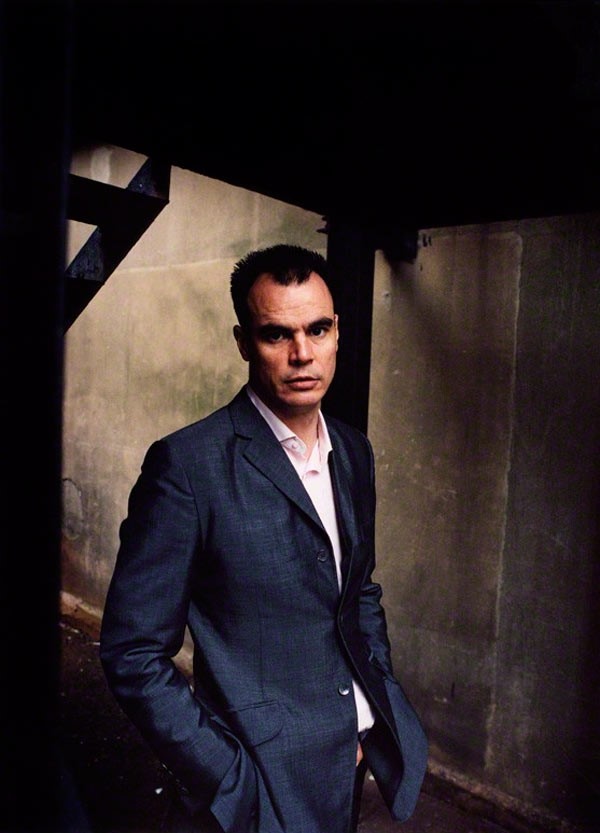Jake Arnott has never been interested in normal. But then he's not exactly sure normal exists. "The interesting thing about people," he says, "is that we're all normal to ourselves," and in a crazy, chaotic universe, normal can be stretched over
"The interesting thing about fiction is that it is very definite, it has a sort of confidence about it, that non-fiction doesn't. History has become, or always has been, very contentious in this country, and historians themselves wield a lot of power. People like David Starkey want to establish an almost radically right-wing view of history. The failure of Marxism as an academic model meant that it was inevitable that right-wing historians were going to come in and put the boot in, so, in some ways, the only place you can have radical history now is in fiction. As Oscar Wilde said, 'the one duty we owe to history is to rewrite it.' You know, I believe that there is no history, there are only historians, only people who tell the story. Napoleon said that history is 'but a fable agreed upon'. It’s always about who's telling the story. Whose agenda this is. So yeah, I often get criticised, people think 'oh God, he's playing these outrageous ludicrous games.’ And to a certain extent I am, but there's a method in that madness as well.
"The interesting thing about fiction is that it is very definite, it has a sort of confidence about it, that non-fiction doesn't"
Essentially, I’m interested in what’s hidden, what’s not talked about. People think of the past as being a certain place, a safe place. It's not, the past is much more uncertain than the future, because we don't really know what happened. There are so many books about the Second World War, the twentieth century, British history, that push a sort of propaganda to make us feel good about ourselves. And I don't want to merely say that we are bad. I don't think we're any worse than anybody else. But I think that it was a lot stranger than we think. British intelligence in the Second World War was very very odd. And I'm tired of the same old stories coming out about how we won the war. We won it by the skin of our teeth, and because we lied very well. The British are very good at lying, because there's a certain sort of English public schoolboy who is taught deception, and we were much better at lying than the Germans. I think that this is the job of writers. To look – not to glamorise – but to try and understand what the glamour and the truth were."
Jake Arnott has never been interested in normal. But then he's not exactly sure normal exists. "The interesting thing about people," the British novelist says, "is that we're all normal to ourselves," and in a crazy, chaotic universe, normal can be stretched over anything at all. For his sixth book, The House of Rumour, Arnott has, as is his wont, thrown genre definition and literary convention, to the wind; fashioning a sprawling narrative that stitches fictional characters, alongside real people and their genuine fetishes and peccadilloes, into real events. It seems like too much – the chapter structure is the Major Arcana of the tarot deck, sections are told from the perspective of Nazi deserter Rudolf Hess, novelist Ian Fleming, Aleister Crowley, and Scientology founder L. Ron Hubbard all make appearances – yet these seemingly disparate elements are woven into a novel that is at once irreverent, witty, bewildering and tender. In a bold sweep across seventy years, Arnott jostles the cards of the past and deals them out, finding extraordinary connections in the most unexpected of places; reaching into the once untouchable realm of history and roughing it up a bit.
The House of Rumour is out now, published by Sceptre. Jake Arnott was speaking as part of Whiskey and Words. The next event, with Booker Prize longlisted author Ned Beauman and John Niven, is set to take place on August 23 at Rough Trade East. To attend, RSVP here.
Text by Tish Wrigley
Photography by Rob Hann
